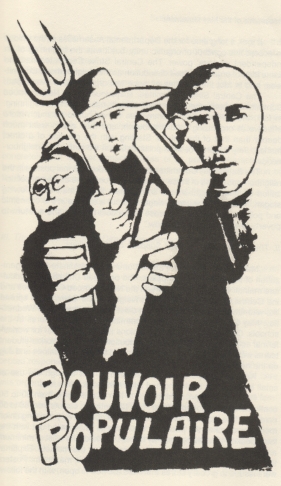The May Events Archive / événements de mai 1968

About the Collection
Nineteen sixty eight was the climactic year of New Left protest all over the Western world, and especially in France where in May of that year ten million workers transformed a student protest into a revolutionary movement by joining it in the streets. In the short space of a month France was overthrown and restored, but not without suffering a shock which resounds to this day. Like many an unsuccessful revolution before it, the May Events triumphed in the political culture of the society that defeated it in the streets. Although the Events occurred in France, they reveal many of the underlying causes of student protest throughout the advanced capitalist world, including the United States.
The May Events were at once the last gasp of the old socialist tradition and the first signal of a new kind of opposition. They are important to us today as a link with the past and as harbingers of the politics of the present. The May Events transformed the popular image of socialism in France, contributing to the collapse of moribund Stalinist and social democratic traditions, and prepared Mitterand's eventual victory as the first "socialist" President of the Fifth Republic. After May, the extra-parliamentary opposition was finally able to come out from under the shadow of the established Left parties. Activists created new social movements such as the environmental and feminist movements which continue to have an impact. Meanwhile, French intellectuals were also liberated from the moral burden of communist ideology, that had weighed on them since World War II. New theoretical movements associated with the names of Foucault, Deleuze, Baudrillard finished the theoretical break with the old left begun in 1968.
The May Events Archive documents this exciting historical moment with original leaflets, magazines, and newspapers from the period. Andrew Feenberg collected the documents at demonstrations and rallies during May. The documents were gathered more or less at random and are sufficiently numerous to offer a good cross section of the thought and action of the period. Inquiries concerning the potential use of any images or online material in this collection should be directed to Andrew Feenberg. Readers interested in further study of the history of the movement are referred to Professor Feenberg's co-authored book When Poetry Ruled the Streets (SUNY Press, 2001), or a more recent article in PhaenEx. An interview with Professor Feenberg (from YouTube) is also available.